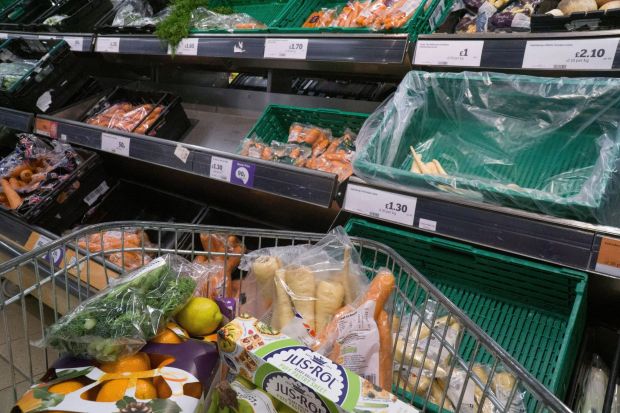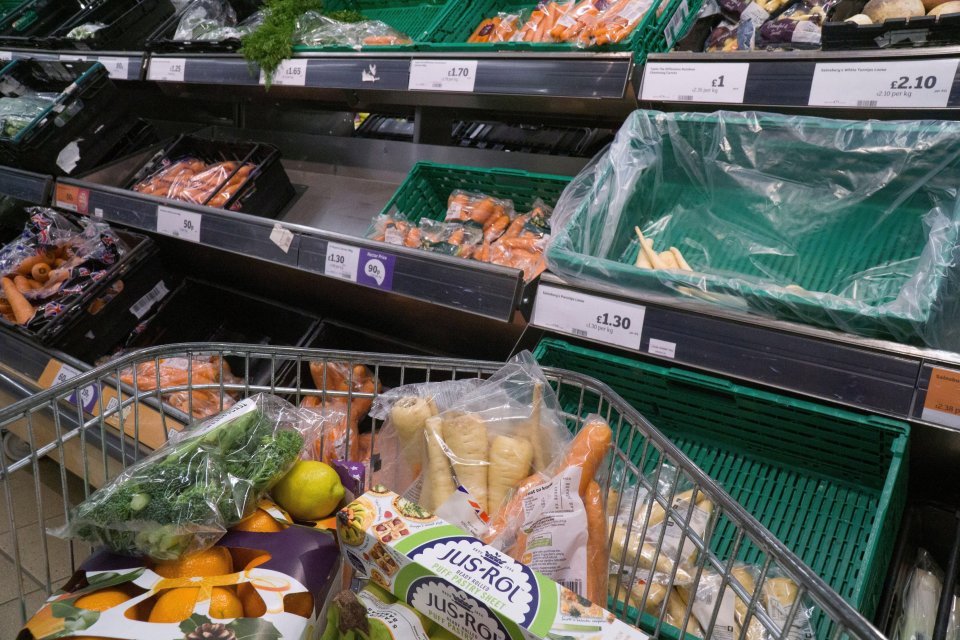Massive change to the way you shop for fruit and veg as supermarkets face ban on plastic packaging

SHOPPERS are facing a massive change to the way they shop.
In a drastic plan to cut down on food waste, pre-packed fruit and veg is set to come to an end.
Instead of buying bags of produce, customers will be instead pick loose fruit and veg.
Although many supermarkets are already selling fresh items in recyclable bags, the proposed ban will make it compulsory for all stores.
Food waste amounted to 12 stone per person only in 2021, according to research.
Anti-waste charity Wrap behind the crackdown said some delicate foods could still be sold in plastic - including soft fruit.
READ MORE MOENEY NEWS
Wrap director Catherine David said: “We waste 12 per cent of the food that we buy, with an average household of four throwing away £1,000 of good food each year.
“This is happening because our food system is making it hard for people to buy only what they need and to use more of what they buy.”
Official figures revealed that only 19 per cent of fruit and vegetables are being sold loose.
But Wrap said voluntary efforts by giant supermarkets have been too slow to hit its target.
Most read in Money
They aim to reach a 30 per cent of fruit and veg being sold without packaging by next year.
As much as 80 per cent of packaging could be removed within three years, according to reports.
The government hopes the ban on packed veg and fruit will eventually reduce plastic waste.
Thousands of tons of plastic packaging are estimated to end up in landfill or being burnt every year.
MP Sir Robert Goodwill said: “I welcome any attempts to reduce plastic packaging of supermarket food and allow more people to buy fruit and veg loose.”
However, many fear grocers could be hit hard by the ban as they face soaring prices .
A British Retail Consortium spokesman said: “With grocers already facing very significant cost increases across the supply chain, it’s important any further regulatory burdens are proportionate.”
It comes as shoppers faced even higher food costs, thanks to government packaging waste plans, according to an industry body.
Read More on The Sun
The updated rules from the government will regulate so-called extended producer responsibility (EPR) to tackle the growing problem of packaging waste.
These regulations aim to shift the waste and recycling costs of packaging from local authorities to the businesses that produce it.
















